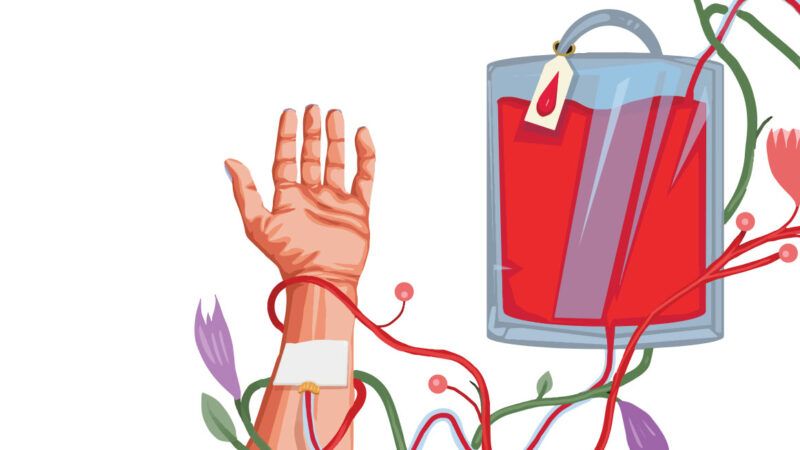The Biomedical Testing Revolution Promises a Theranos That Actually Works
Most cancer diagnoses and deaths are due to cancers for which there are no recommended screening tests.

"Cancer signal not detected." That was the happy finding of my Galleri multi-cancer early detection (MCED) blood test from the Silicon Valley biotech company GRAIL. The Galleri test presages an emerging wave of new precision biomedical tests produced by a panoply of biotech startups.
GRAIL's MCED test analyzes DNA shed by both normal and cancerous cells into a person's bloodstream, looking for telltale epigenetic changes that affect the way genes operate. Specific changes are associated with the presence of cancer cells.
Published research indicates that the test can detect a shared signal across more than 50 types of cancer. They include pancreatic, liver, and kidney cancers, which are difficult to diagnose early. The Galleri test not only detects a cancer signal but also provides two predictions of the cancer signal's origin to inform further diagnostic evaluation.
MCED screening is a potentially significant advance because there are currently only five recommended cancer screening tests: for breast, colorectal, lung, cervical, and prostate cancers. Around 70 percent of new cancer diagnoses and deaths are due to cancers for which there are no recommended screening tests.
The Galleri MCED test is undergoing several clinical trials, including a randomized controlled trial under the auspices of the U.K.'s National Health Service. That trial is enrolling 140,000 participants to determine if early detection is associated with a statistically significant reduction in the incidence of late-stage cancers.
A 2021 epidemiological modeling study calculated that MCED screening could cut late-stage cancer diagnoses by more than half in the U.S. population aged 50 to 79. That would reduce five-year cancer mortality by 39 percent, resulting in a 26 percent reduction in overall cancer-related deaths.
Around 78 percent of all cancer cases are diagnosed after age 55 in the U.S. The Galleri test currently costs $949 and is not covered by private insurance or federal health care systems.
Cancer is the second leading cause of death in the U.S., but many other things can go wrong with your body. This is where a promising but very preliminary at-home micro-sampling blood test developed by Stanford geneticist Michael Snyder comes in. A study in the January issue of Nature Biomedical Engineering reported the results from a multiomics test developed by Snyder and his team, which measures thousands of proteins, lipids, and hormones from two drops of blood.
"I call it 'Theranos that works,'" Snyder quipped in The Stanford Daily, referring to the fraudulent blood-testing startup founded by Elizabeth Holmes. Snyder's test analyzes the molecules in blood samples using a combination of mass spectrometry (which identifies ionized molecules matched with a spectral database) and multiplexed immunoassays (which simultaneously measure molecules that attach to differently colored, antibody-coated magnetic beads).
The first of Snyder's two proof-of-concept experiments measured the changes in 2,000 known metabolites, lipids, and proteins (including cytokines) in the at-home blood microsamples of 28 people before and after they consumed a nutrient shake. The second experiment analyzed metabolite changes in hundreds of molecules in 98 blood microsamples collected for a week from a single person wearing a smartwatch and a continuous glucose monitor.
The clinical goal of frequent at-home blood microsample testing, according to Snyder and his Stanford Department of Genetics colleague Ryan Kellogg, is to "improve diagnostic precision and reduce the time taken to arrive at the optimal treatment." Snyder's research already has been used by the biotech startup Iollo, which has developed a test that measures more than 500 metabolites associated with inflammation and liver, kidney, and immune health as well as aging and longevity.
Soon comprehensive diagnostic testing advances like these will make it easy for people to monitor their health in real time. That information could enable them to ameliorate impending illnesses through preventive measures.


Show Comments (28)